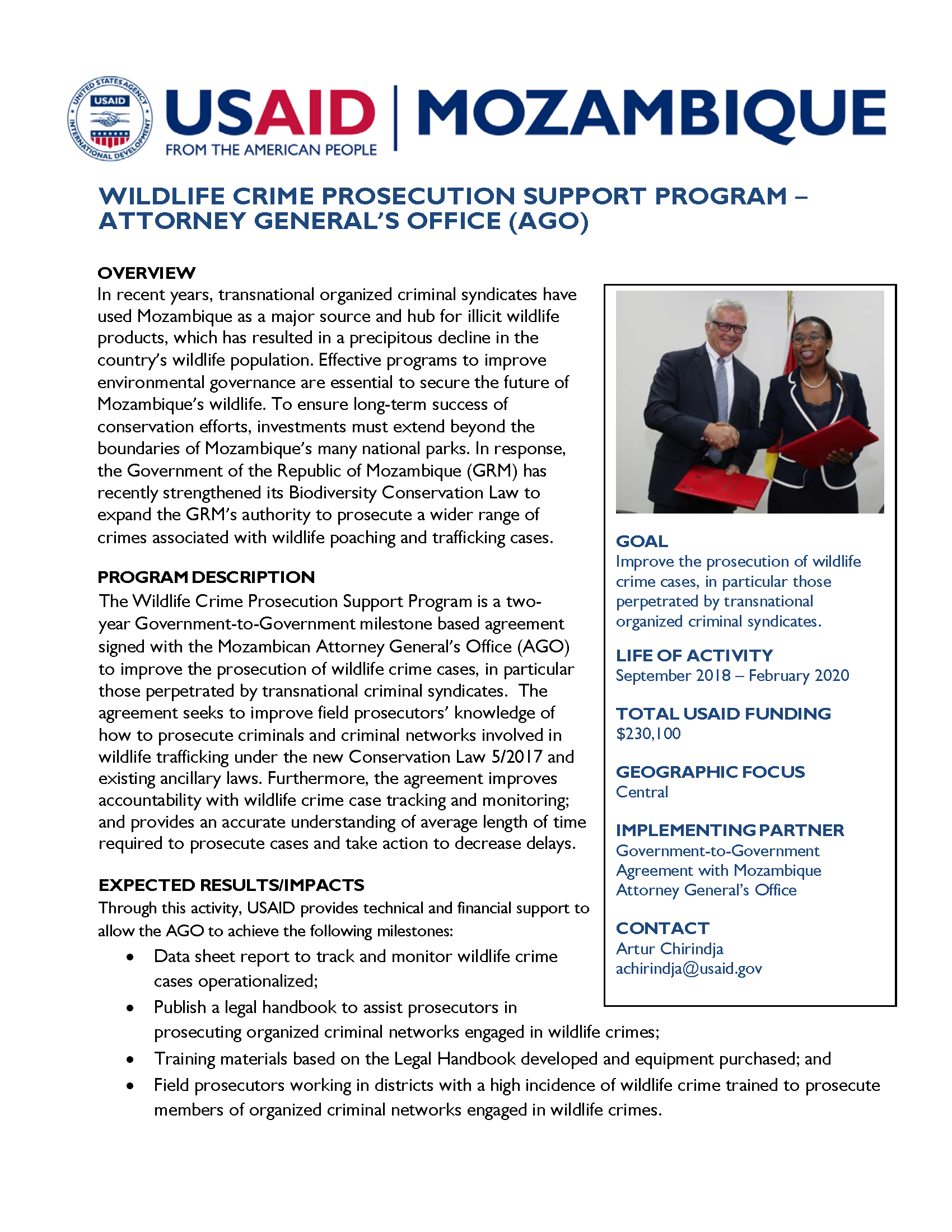Speeches Shim
OVERVIEW
In recent years, transnational organized criminal syndicates have used Mozambique as a major source and hub for illicit wildlife products, which has resulted in a precipitous decline in the country’s wildlife population. Effective programs to improve environmental governance are essential to secure the future of Mozambique’s wildlife. To ensure long-term success of conservation efforts, investments must extend beyond the boundaries of Mozambique’s many national parks. In response, the Government of the Republic of Mozambique (GRM) has recently strengthened its Biodiversity Conservation Law to expand the GRM’s authority to prosecute a wider range of crimes associated with wildlife poaching and trafficking cases.
PROGRAM DESCRIPTION
The Wildlife Crime Prosecution Support Program is a two-year Government-to-Government milestone based agreement signed with the Mozambican Attorney General’s Office (AGO) to improve the prosecution of wildlife crime cases, in particular those perpetrated by transnational criminal syndicates. The agreement seeks to improve field prosecutors’ knowledge of how to prosecute criminals and criminal networks involved in wildlife trafficking under the new Conservation Law 5/2017 and existing ancillary laws. Furthermore, the agreement improves accountability with wildlife crime case tracking and monitoring; and provides an accurate understanding of average length of time required to prosecute cases and take action to decrease delays.
EXPECTED RESULTS/IMPACTS
Through this activity, USAID provides technical and financial support to allow the AGO to achieve the following milestones:
• Data sheet report to track and monitor wildlife crime cases operationalized;
• Publish a legal handbook to assist prosecutors in prosecuting organized criminal networks engaged in wildlife crimes;
• Training materials based on the Legal Handbook developed and equipment purchased; and
• Field prosecutors working in districts with a high incidence of wildlife crime trained to prosecute members of organized criminal networks engaged in wildlife crimes.


Comment
Make a general inquiry or suggest an improvement.